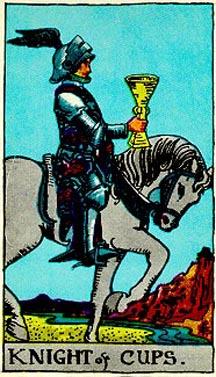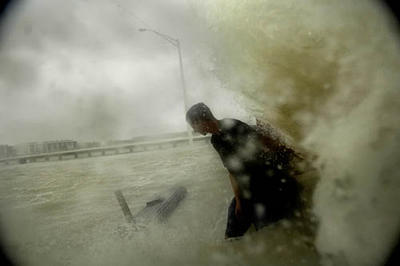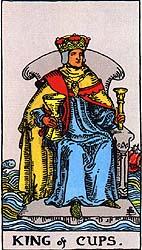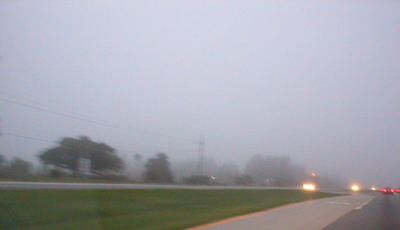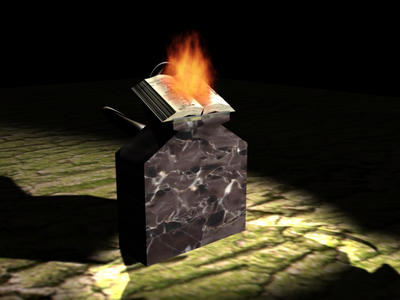 MY BOOK OF DEAD HOURS
MY BOOK OF DEAD HOURSJuly 2005
I’ve filled two score journals
with the same sort of harrow,
late-late-night after night,
at an hour when the rest
of the world has died, returning
to the same underground door,
the same boat, the same drift
down these pages, writing a
soulish travail which no one
else may ever read, much
much less care to. It’s 4:05 a.m.
and I’ve been up since 2 today,
turning slow on a spit of
dubious flame while my wife’s
in a Lake City hospital yet
another night, stricken with
some deep gut-sickness the
docs can’t quite explain.
Outside at this day and hour
it’s just a sour-mashed swoon,
the faintest filament of crickets
in a vast black stillness
which may simply be the
haunt of lonliness or whisper
of some next gate going down.
There comes a time in the journey
below when a man’s heart is
weighed against a feather from
the headdress of Maat, Goddess
of Truth; if I’ve erred in all this
my pan will fall, taking with
it this book of dead nights.
Maybe the grip will relent
and I’ll be freed to write real
poems again, freed too to sleep
all the way through to the
first blueing of the sky,
hell, maybe even wake after
my wife does, for the first
time in all these years -- maybe
all that after all of these books
tossed page by page to the
night’s blackest tide. Maybe
this pen will name the last
warden of the last door and
wing my way through to the
end of all words, and then
I’ll go on with life like Saint
Brendan back from the sea,
the book of wonders he
burnt in disbelief finally
re-scored, its pages filled
with all he himself found
on the blue desert of God’s main.
Freed to love, plant a garden,
die -- my book of blue harrows
goes on and on and on
in the black ink of burnt angels,
a tide of their blood. We’re
deep into summer, the cruel
ecstasy of wild skies, poorer
and itchier and more fearful
by turns, like pages the
augments have yet to fully burn.
Augments which ghost here
in surges and shrieks,
in stillness so deep I
can cut it with the life
which woke on this page
which no one will read.
***
MEPHISTOPHELES.
Hold, Take this book: peruse it thoroughly.
The iterating of these lines brings gold,
The framing of this circle on the ground
Brings whirlwinds, tempests, thunder and lightning;
Pronounce this thrice devoutly to thyself
And men in armor shall appear to thee,
Ready to execute what thou desirest.
FAUST.
Thanks, Mephistopheles, yet fain would I
have a book wherein I might behold all
spells and incantations, that I might raise
up spirits when I please.
MEPH.
Here they are in this book
They turn to them.FAUST.
Now would i have a book where
I might see all characters and planets
of the heavens, that I might know
their motions and dispositions.
MEPH.
Here they are too.
Turn to them.FAUST.
Nay, let me have one book more,
and then I have cone, wherein
I might see all plants, herbs,
and trees that grow upon the earth.
MEPH.
Here they be.
FAUST.
O thou art deceived!
MEPH.
Tut, I warrant thee.
Turn to them.-- Marlowe
Doctor Faustus, VI, 1-22
***
Turn to them: Behold the book which contains all, knows all, sees all: for such a book empowers the deepest darkest glance, and so sighted, hauls up the ancient words of power. According to Emerson, language is “fossil poetry,” Man Reading is a miner of first fire, ferryman of the original outrage, and the Book is a ball of fire. In our once-literate culture, all of the sources moulder in its books. You just have to be willing to go down in them.
***
THE LIBRARY AND
THE WORK DOWN UNDERApril 2002, while visiting
my fatherOvernight the rains eased in,
pressing gray hands down
over this house like a monk’s hood.
Yesterday’s outer wonder
is now an inward bliss,
opening doors downward
in a passage grave lined with books.
I always spend time scanning
titles on the shelves of my father’s
library when I’m here, turning up
new finds like root-vegetables.
The names are not important,
only that I look and I find.
It’s as if this library were my
own, or my totem’s. Steady rains
in the blurred green gray window,
my father humming as he
makes his first coffee, oak beams
dark - two centuries old -
and a thousand books murmuring
me to me, on shelves around
and within me, calling me,
urgent to unfold something
I don’t know yet, or won’t ever,
a thousand spines I must sever
to get to the one book
which has grown long enough.
***
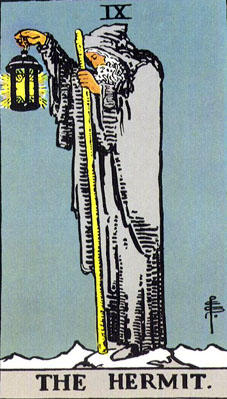
From Adamnan’s
Life of Columba, Book II, Chap.viii:
Of a volume of a book in the Saint's handwriting which could not be destroyed by water.I CANNOT think of leaving unnoticed another miracle which once took place by means of the opposite element. For many years after the holy man had departed to the Lord, a certain youth fell from his horse into the river which in Scotic is called Boend (the Boyne), and, being drowned, was for twenty days under the water. When he fell he had a number of books packed up in a leathern satchel under his arm; and so, when he was found after the above-mentioned number of days, he still had the satchel of books pressed between his arm and side. When the body was brought out to the dry ground, and the satchel opened, it was found to contain, among the volumes of other books, which were not only injured, but even rotten, a volume written by the sacred fingers of St. Columba; and it was as dry and wholly uninjured as if it had been enclosed in a desk.
Of another Miracle in similar circumstances.AT another time a book of hymns for the office of every day in the week, and in the handwriting of St. Columba, having slips, with the leathern satchel which contained it, from the shoulder of a boy who fell from a bridge, was immersed in a certain river in the province of the Lagenians (Leinster). This very book lay in the water from the Feast of the Nativity of our Lord till the end of the Paschal season, and was afterwards found on the bank of the river by some women who were walking there: it was brought by them in the same satchel, which was not only soaked, but even rotten, to a certain priest named Iogenan, a Pict by race, to whom it formerly belonged. On opening the satchel himself, Iogenan found his book uninjured, and as clean and dry as if it had been as long a time in his desk, and had never fallen into the water. And we have ascertained, as undoubted truth, from those who were well informed in the matter, that the like things happened in several places with regard to books written by the hands of St. Columba namely, that the books could suffer no injury from being immersed in water. But the account we have given of the above-mentioned book of Iogenan we have received from certain truthful excellent, and honourable men, who saw the book itself, perfectly white and beautiful, after a submersion of so many days, as we have stated.
These two miracles, though wrought in matters of small moment, and shown in opposite elements namely, fire and water, redound to the honour of the blessed man, and prove his great and singular merits before the Lord.
***
What to do with that Voice which does not die, like Orpheus’ singing mouth and Oran’s mud-caked ebullient throat, like the words of the Saint which cannot be eradicated from his paper, his calligraphy impermeable to fire and water? Daunting influence. Writers continually kill their fathers to get to their Themes; they have to slay the father-dragon to get to the gold hoarded in the uterus owned by paternity. And the longer we hang around words, the more difficult it is to say anything with the breadth and depth boomed by our sires.
On Saturday, getting a solid block of rest watching college football on TV and reading a rondo of Bates’ biography of Keats, Goethe’s
Faust and
Moby Dick, yet again I was brought back to this theme of contending with literary fathers in the process of engendering first fire.
Thus in Bates I read how Keats returns in “Sleep and Poetry,” one of his first really “strong” (dragon-slaying) effort, he returned to the verse letter form to write a poem about Poetry: foundational work, but also repetitive, since he had already been successful in the form in three previous verse epistles. How could such repetition yet prove so revolutionary? Bates suggests that reiteration of origins in a spirit of reverence and joy kept the young poet’s verses growing exponentially and radically, where others simply beat themselves upon a wall:
“In a sense, he was to retread that ground until the end. But because the concern was primary and universal, the return to it proved increasingly valuable. that concern was nothing less than the use of poetry itself -- and it was a concern that could easily paralyze endeavor and confidence. It was precisely this large, high-minded absorption in the past monuments of literature that was to inhibit Matthew Arnold and so many who followed Arnold. Yet Keats’s poetic achievement offers no greater interest than in the remarkable success with which he by-passes these inhibitions
by constantly reverting to basic premises and generous ideals. He was to feel every qualm in doing so; naivites sprouted like mushrooms; and he quickly knew them to be naivites, and suffered accordingly. But single-mindedly in this one way (however open he was in other ways) he kept reverting to the larger aims of the great poets of the past -- scorning to manicure their details, and seeking instead to receive their spirit.” (italics mine)
Keats stuck to his backward glance, welcoming the father’s voice in his own: an accommodation which requires not only great facility (to have mastered the craft on a par with one’s predecessors) but also to have balls the size of a founding father. Perhaps if Keats’s father had not died when he was young, perhaps if he himself was not such a wild instinctual reader and lusty to boot, there could not have been the sort of upwelling of old waters to spring from his throat.
***
This, from the end of Keats’s “Sleep and Poetry”:
... Petrarch, outstepping from the shady green,
Starts at the sight of Laura; nor can wean
His eyes from her sweet face. Most happy they!
For over them was seen a free display
Of out-spread wings, and from between them shone
The face of Poesy: from off her throne
She overlook’d things that I scarce could tell.
The very sense of where I was might well
Keep Sleep aloof: but more than that there came
Thought after thought to nourish up the flame
Within my breast; so that the morning light
Surprised me even from a sleepless night;
And up I rose refresh’d, and glad, and gay,
Resolving to begin that very day
These lines; and howsoever they be done,
I leave them as a father does his son.
***
Fathering, indeed. And what are we to do with
him, our most adventurous sire?
***
LETTER TO JOHN KEATSThe Spanish Steps -- Feb. 23, 1961Jack Gilbert
What can I do with these people?
They come to the risk so dutifully,
Are delighted by anecdotes that give
Them Poetry. Are grateful to be told
Of diagonals that give them Painting.
Good people. But stubborn when warned
The beast is not domestic.
How can I persuade them
That the dark, soulful Keats
Was five feet one?
Liked fighting and bear-baiting?
I can’t explain the red hair:
Nor say how you died so full
Of lust for Fanny Browne.
I will tell them of Semele.
from
Views of Jeopardy (1962)
***
Melville attacks the father with a side-step -- off to sea; and though sea-tales are commonplace, no one had told a story of whaling, a very low station of employment in the order of the mid-19th century. Yet Melville knew his Theme to be great, and decided to tell it on sea-roads, and abroad the back of a whale, no less. In the chapter “The Fossil Whale” Melville again sounds the depths of his charge, marshalling the full extent of language and knowledge, gaining heft from the girth of the sea and the massed aons of Time:
***
From his mighty bulk the whale affords a most congenial theme whereon to enlarge, amplify, and generally expatiate. Would you, you could not compress him. By good rights he should only be treated of in imperial folio. Not to tell over again his furlongs from spiracle to tail, and the yards he measured about the waist; only think of the gigantic involutions of his intestines, where they lie in him like great cables and hawsers coiled away in the subterranean orlop-deck of a line-of-battle-ship.
Since I have undertaken to manhandle this Leviathan, it behooves me to approve myself omnisciently exhaustive in the enterprise; not overlooking the minutest seminal germs of his blood, and spinning him out to the uttermost coil of his bowels. Having already described him in most of his present habitatory and anatomical peculiarities, it now remains to magnify him in an archaeological, fossiliferous, and antediluvian point of view. Applied to any other creature than the Leviathan- to an ant or a flea--such portly terms might justly be deemed unwarrantably grandiloquent. But when Leviathan is the text, the case is altered. Fain am I to stagger to this enterprise under the weightiest words of the dictionary. And here be it said, that whenever it has been convenient to consult one in the course of these dissertations, I have invariably used a huge quarto edition of Johnson, expressly purchased for that purpose; because that famous lexicographer's uncommon personal bulk more fitted him to compile a lexicon to be used by a whale author like me.
One often hears of writers that rise and swell with their subject, though it may seem but an ordinary one. How, then, with me, writing of this Leviathan? Unconsciously my chirography expands into placard capitals. Give me a condor's quill! Give me Vesuvius' crater for an inkstand! Friends, hold my arms! For in the mere act of penning my thoughts of this Leviathan, they weary me, and make me faint with their outreaching comprehensiveness of sweep, as if to include the whole circle of the sciences, and all the generations of whales, and men, and mastodons, past, present, and to come, with all the revolving panoramas of empire on earth, and throughout the whole universe, not excluding its suburbs. Such, and so magnifying, is the virtue of a large and liberal theme! We expand to its bulk. To produce a mighty book, you must choose a mighty theme. No great and enduring volume can ever be written on the flea, though many there be who have tried it.
... by far the most wonderful of all Cetacean relics was the almost complete vast skeleton of an extinct monster, found in the year 1842, on the plantation of Judge Creagh, in Alabama. The awe-stricken credulous slaves in the vicinity took it for the bones of one of the fallen angels ...
When I stand among these mighty Leviathan skeletons, skulls, tusks, jaws, ribs, and vertebrae, all characterized by partial resemblances to the existing breeds of sea-monsters; but at the same time bearing on the other hand similar affinities to the annihilated antichronical Leviathans, their incalculable seniors; I am, by a flood, borne back to that wondrous period, ere time itself can be said to have begun; for time began with man. Here Saturn's grey chaos rolls over me, and I obtain dim, shuddering glimpses into those Polar eternities; when wedged bastions of ice pressed hard upon what are now the Tropics; and in all the 25,000 miles of this world's circumference, not an inhabitable hand's breadth of land was visible. Then the whole world was the whale's; and, king of creation, he left his wake along the present lines of the Andes and the Himmalehs. Who can show a pedigree like Leviathan? Ahab's harpoon had shed older blood than the Pharaoh's. Methuselah seems a schoolboy. I look round to shake hands with Shem. I am horror-struck at this antemosaic, unsourced existence of the unspeakable terrors of the whale, which, having been before all time, must needs exist after all humane ages are over ...
***
Oh indeedy. Here is is, 5:23 a.m. on a Monday morning, back to a five-day roaring bender of labors, the dark outside foggy with humidity, fat ass of Uranos pressing down from above, squeezing us bugeyed with heat frustration. Here I begin shutting the book, typing the last lines, inserting a final poem: soon to S,S & S, gobble some breakfast cereal, see if the kitties have assembled yet on the porch to eat, head upstairs to hold my wife, stroke her feet, tell her everything will be OK when she visits her OBGYN this morning for an ultrasound on an ovarian cyst which showed accidentally on a test earlier this summer. Whispering to her how this is only a followup, nothing to worry, her business ripe and ready to roar, get through this and back to the great work: words from my book of love which I delve wholeheartedly, whether they’re true or not, whether words have any greater import than the touch of my fingertips along the topsoles of her feet, that soul-keyboarding which has nothing and everything to do with this, the life inside the work I mean, all that protects and bowers and engenders my waking, as the work empowers and inspires and deepens the life. The work and the life, the art and the heart, they are not exclusives but concatenates, sea and shore of the same song, til death do us part ...
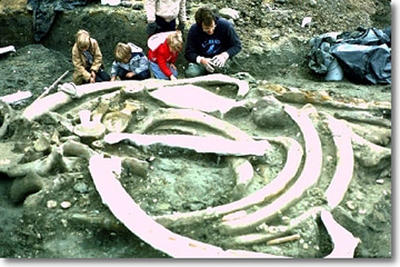 SONS OF STARRY URANOS
SONS OF STARRY URANOSOct. 9, 2005
Sons will have their mothers
come hell’s every ball-high-water,
that flood unleashed by
one swipe of a hoar grey sickle
by which all mothers bid
their son replace old noctal
passions with the new.
Thus ages succeed each other
in motherly vengeance
and a child’s guilt-soggy greed,
bridged by cruel inventions
and newer rapt conceptions,
lesser powers, greater gains,
puerile gambols, ungartered rains.
And old dads never die,
their roar of outrage unfading
in the thunders which ejaculate
new dooms, the risen nippled
Venus wave-stepping on each
bedded shore with such graceful
fuckability you sense his
ancient ardor in every evil
lash she bats. Her smile is so
slight, so devious, barely
concealing in its demure
so hesitant upcurve
the massive cock
and balls within which
alchemized salt water
into pure empyriea,
fire water thieved from
the Maker of all fires.
Her eyes are filled
with his incessant drive
to bliss, starry as the sky
which each night for
an etern fell on earth to
raven plunge & furrow
all the Titan rhymes
spring-locked in our
concupiscent too-conscious brow,
concatenate in mind and soul
-- yowling Iapetos, wave-tressed
Thetis, bookish Mnemosyne,
Time. All were freed to plague
our breast because that feral
sickle dared to rise and slice
offending members free, ending
five million years of noctal
same old same old fucks,
begetting daily rise and falls,
their proscribed pistionings
in rhythmus to our time.
Womb to grave we race, trying
to fit somehow in both
cunts of origin and future ore
we’ll never harrow nor mine well,
not like the archon Daddy
who penumbrates the depths
of hell with insatiate desire.
Always the sands beat us through
that narrow isthmus of glass
between the tits and ass,
the one substantial embrace that
we seek not found in time’s
one then other space, that
doppler curvature descending from
one fullness and plopping out
the other with no more than
a grain of heaven’s shore,
our O-mouths mewling
forever of her and more.
And all this while sons of
ours take steady aim at
cutting us forever off from
her clam, our claim to it I mean.
That’s the way it goes if you buy
the tale that endless night
was ended in one’s day’s
curve from thought to deed,
one sweep from cock to balls
and through. A sickle moon
hangs to the west this morning,
singing over that ancient
tumulus where every lust and ire
fonts so wicked and so bottomless
a starry hell-hot cream,
quintessence of the dad I’ll always dream
inside the mom I cannot mean.


